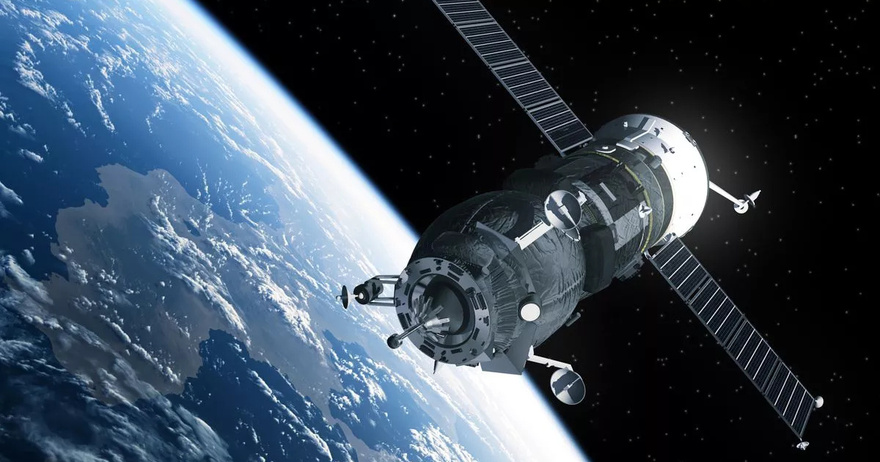Vladimir Putin appears to have decked out a mysterious Russian satellite with a “dummy warhead” – potentially arming a devastating space weapon.
The Cosmos 2553 satellite currently circles the Earth every two hours in a “graveyard orbit” only shared by 10 other spacecraft, but it is the only one of the 11 still active in the highly radioactive region of space. Being the only “live” satellite in the area means that it stands out, but it has mystified US military personnel.
Moscow has officially claimed the unarmed object is actively testing the impact of the radiation on “newly developed onboard instruments and systems”. But one key detail has captured official attention – it carries a warhead that could serve as a frontrunner for an unprecedented weapon.
The New York Times reports that Cosmos 2553 has been outfitted with a “dummy” warhead, a fake missile that currently poses no risk to orbital technology owned by other nations. But the publication reported that military officials at the Space Command Joint Operations Centre have new information suggesting it could become more dangerous.
The officials put together reports from multiple intelligence agencies and “keyed satellite sensors” onto the Cosmos, allowing them to find what the Times described as a “working model for Russia ’s nuclear anti-satellite program”. The programme, the publication reported, “relays data on how an operational weapon would perform, should it be placed in orbit”.
Officials later theorised that the satellite could lay the groundwork for “a counterspace weapon presumably capable of attacking other satellites in low Earth orbit”. The idea of nuclear-capable weapons in space is not a new one – the concept has existed for as long as humankind has had a presence in space – with US President Ronald Raegan’s administration having famously concepted a “Star Wars” system that could fire nukes down to the planet from orbit.
The US and Russia have – at least officially – agreed not to install nuclear-capable weapons systems in space, with the agreement outlined in the 1967 Outer Space Treaty. Recently, however, Russia appears to have diverged from its provisions, with its United Nations delegation refusing to uphold key passages in 2023.
Putin has publicly dismissed allegations that he is developing a space-based nuclear platform saying his administration has “always been categorically against and are now against the placement of nuclear weapons in space”. Sergei Ryabkov, the Russian Deputy Foreign Minister, went further, branding western reports of the satellite’s alleged capabilities “fake news”.
In comments reported by the Interfax news agency, he said: “I don’t think we should respond to any fake news from Washington.” He added: “The Americans can say whatever they want but our policy does not change from this.”
Wendy’s Reacts to Backlash Over Joke About Leaving Katy Perry in Space: ‘Always Bring a Little Spice’
Michael Bublé Is Living The Good Life With His Family In A Multi-Million Dollar Mansion In His Hometown.
Dolly Parton’s best duet yet: ‘There Was Jesus’
Grooving Groom Daniel Lewis’s Epic Dance Entrance With His Boys Makes Wedding Goes Viral.
